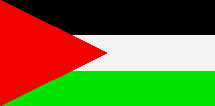The message to Israelis must be: It's not about you. It's about us. And we're tired of waiting.
September Song
Omar M. Dajani
Tuesday, May 24, 2011
Oh, it’s a long, long while from May to December/But the days grow short when you reach September/ When the autumn weather turns the leaves to flame/ One hasn’t got time for the waiting game.” — Maxwell Anderson, September Song, 1938
In his speech on the Middle East Thursday, President Obama greeted the arrival of spring in the Arab world with enthusiasm. His prescriptions for achieving Arab-Israeli peace, however, leave the Palestinians once again stalled between seasons.[I] Although the President characterized the transformations sweeping the region as a “story of self-determination” and lauded the courage of Arab citizens who had “taken their future into  their own hands,” he took a dim view of efforts to pursue international recognition of Palestinian statehood this fall. According to Obama, “Symbolic actions to isolate Israel at the United Nations in September won’t create an independent state.” Instead of taking their future into their own hands, Obama suggested, Palestinians should continue down the path of negotiation with the Netanyahu government, however futile talks might seem.
their own hands,” he took a dim view of efforts to pursue international recognition of Palestinian statehood this fall. According to Obama, “Symbolic actions to isolate Israel at the United Nations in September won’t create an independent state.” Instead of taking their future into their own hands, Obama suggested, Palestinians should continue down the path of negotiation with the Netanyahu government, however futile talks might seem.
What Obama seems unwilling to acknowledge is that the protest movements across the region and the drive for Palestinian statehood have more in common than just the anxiety they are producing in Israel. They are also premised on a similar impulse. No less than the Tunisians, Egyptians, Bahrainis, Libyans, Syrians, and Yemenis who have revolted against autocratic regimes, what the 4 million Palestinians living under Israeli occupation are seeking is the freedom to govern themselves. For them, independence means more than a seat at the United Nations General Assembly (UNGA). It means being able to decide where in their country they will live, work, and worship. It means knowing that their government is able to keep them safe. And it means having a say in how their country’s resources are used and distributed.
But how can these aims be realized? The recent reconciliation of Fateh and Hamas, the leading factions of the Palestinian national movement, and the wide scale Palestinian protests last weekend have focused renewed attention on efforts to secure international recognition of Palestinian statehood in September, when the UNGA meets in New York. It has also heightened confusion about the legal and political implications of such a move. A range of questions arise: Is Palestine entitled to recognition as a state? How would action in the United Nations alter Palestine’s legal status? And how could recognition of Palestinian statehood make a difference on the ground, in view of Israel’s continuing military occupation of Palestinian territory and the impasse in negotiations to bring the conflict to an end? President Obama’s curt dismissal of the U.N. option makes finding good answers to these questions all the more urgent.
For the rest of this article, follow the link: http://mideast.foreignpolicy.com/posts/2011/05/24/september_song
